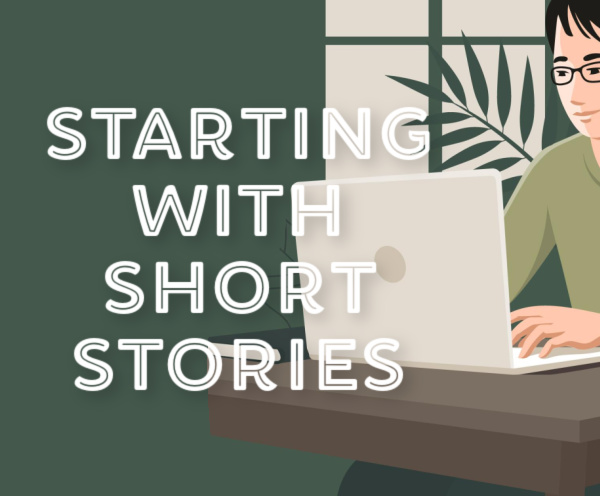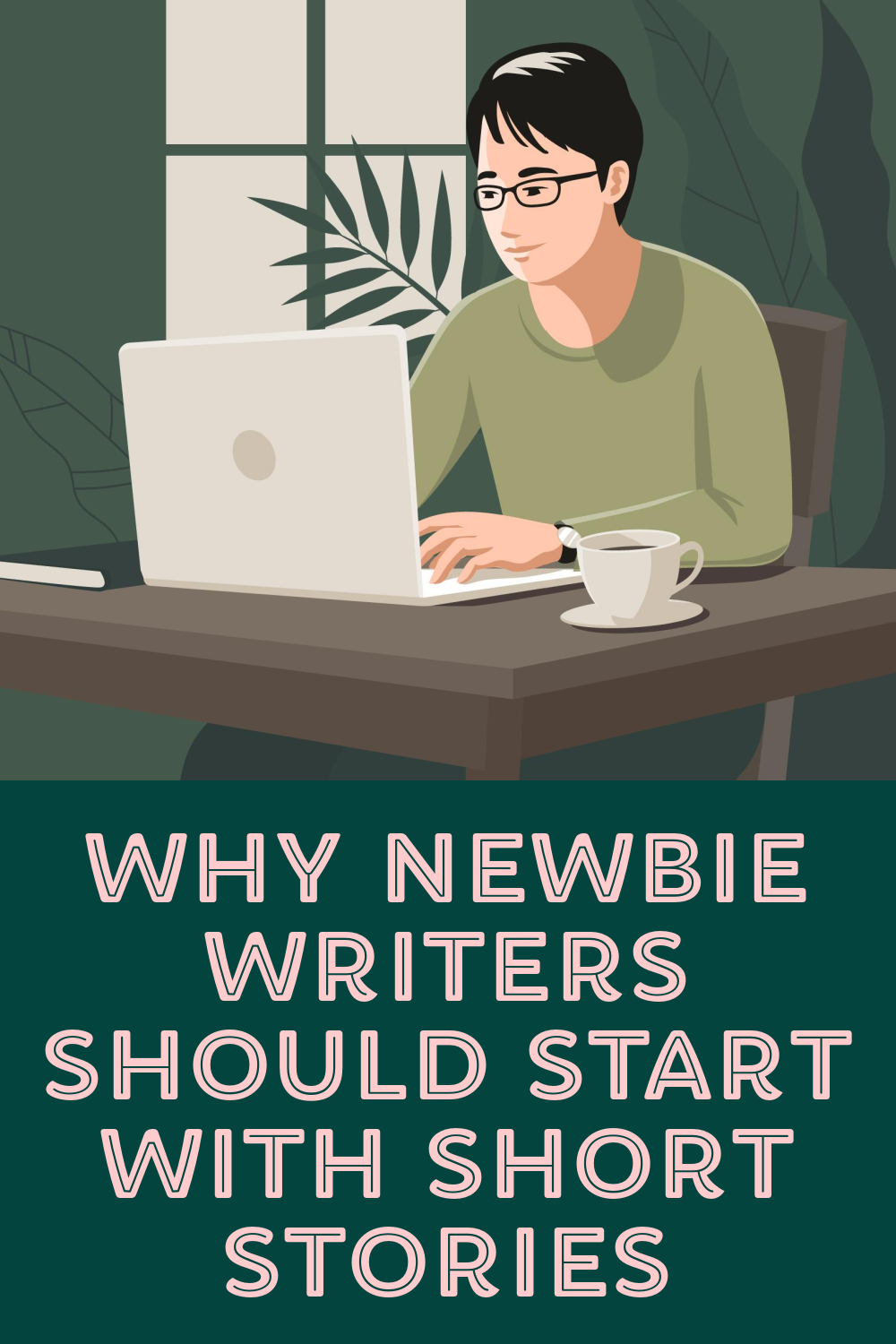Short stories are a staple of the mystery genre, but even if mysteries aren’t your thing, there are plenty of reasons to consider cutting your writing teeth on short stories, no matter what is your genre of choice.
Reason One: Multiple iterations in a short period of time
With short stories, you get to experience the whole process of writing, starting with idea generation all the way through uploading your manuscript to an online retailer or sending it out to magazine publishers if you’re going the traditional route.
You might take years to complete your first novel (this is not unusual) only to find that your first novel isn’t very good (also not unusual), but if you write shorter fiction, you could turn out a title a month, get feedback on each one as you go, and find your stride, your process, and your voice much faster.
Reason Two: Negative Feedback is a lot easier to handle when you have less invested.
The more time and emotional energy you have sunk into your writing, the harder it will be to take criticism on it. So it’s almost inevitable that you’ll have less invested in a short story than you will in a novel.
Developing a thicker skin when it comes to your creative output and learning to distinguish constructive criticism from invalid opinions or outright trolling is a learned skill. The more cycles of receiving feedback you go through, the more emotionally resilient you will become.*
*In most cases–if this doesn’t happen for you, that’s OK. Filtering feedback with the help of a trusted assistant or loved one is always an option. If you find reading negative reviews devasting, it doesn’t mean you need to throw in the towel on writing. Some writers never read their reviews, and if you find reader feedback more damaging than helpful, it doesn’t mean something is wrong with you.
Reason Three: You’ll learn from the start to be economical with language and plot a tighter story.
There’s nothing wrong with detailed descriptions, complicated sentences, twenty-dollar words, and entertaining tangents–when you’re writing a doorstop novel. There’s also nothing wrong with doing these things sparingly in shorter works, but writing short stories will force you to differentiate between what is necessary and unnecessary to move the plot forward and avoid overdoing it with any of the aforementioned as you move on to full-length novels.
Reason Four: You’re more likely to maintain momentum.
There’s something immensely satisfying about finishing a project. It spurs you on to start the next thing. Writing a string of short stories can keep your enthusiasm from flagging.
The typical writer spends a loooong time trying to finish their first novel. Actually, the typical writer has a hard drive, or a drawer full of novels abandoned a quarter or halfway through.
This may be typical, but it’s highly inefficient.
It’s fine to have your first (or second or sixteenth) novel in progress, but taking breaks from time to time to complete a short story and put it out there into the word can go a long way to preventing your writing from grinding to a halt when the going gets rough on your novel.
Taking a break to write a short story to completion is far preferable to abandoning your current novel-in-progress and starting a new one.
Keep the current novel. Figure out what’s wrong with it and fix it, but take a break first if you need to. Get your new project happy hormone fix with a short story. Then go back to that longer project that’s making you want to tear your hair out and run down the street screaming at the heavens.
Note to the discouraged writer reading this: I could tell you, “Remember, writing is fun!” except that’s only true some of the time. Writing fiction is a complex mental task taking enormous amounts of mental and emotional energy. It does get easier the more words you rack up, but it’s never going to stop feeling hard sometimes. Hang in there, but take a break if you need to.
In addition to keeping you from giving up on writing altogether, publishing short stories can earn you a small income from your writing. How much or how little your stories earn at this point is not a reliable gauge of your eventual success, but it does mean you’ve turned pro, and that in and of itself can be enormously motivating.
Reason Five: You’ll identify your areas of weakness much sooner.
We all come to writing with a different set of strengths and weaknesses. Typically, we don’t know what we don’t know until we’re so deep into the process we are forced to learn it.
Whatever that thing is you need to get better at, it will become apparent in writing and publishing a short story in much the same way it would have become apparent in writing and publishing a novel. You’ll just learn what you didn’t know you didn’t know a whole lot sooner, and you can apply that new knowledge to both your next short story and your novel-in-progress.
Reason Six: You’ll start building a base of readers long before you complete your first novel.
Pretty much everyone who talks about indie book marketing pushes the importance of an email list. It’s much easier to build an email list if you have something floating around out there for readers to encounter and enjoy, whether that’s at an online retailer or used as a “reader magnet” to solicit newsletter subscriptions. Ideally, you will build up a small catalog of short stories to use in various ways to introduce yourself to new readers.
Reason Seven: You can explore multiple writing styles and genres before you commit.
This approach has a caveat. I would not use short stories across diverse genres to try and grow a reader base under the same author name.
Using short stories to grow a reader base is something you should do after you’ve committed to a single genre or at least two genres with an overlapping readership (think “yes” to cozy mystery combined with sweet romance or sci-fi combined with fantasy–and a hard “no” to horror combined with romantic comedy or steamy romance combined with children’s picture books).
Speaking of author names, if you are writing short stories as part of your process to settle on a genre, there is no harm in writing under a made-up pen name or even several pen names. Juggling multiple pen names long term is probably not the wisest business decision (although it may have other merits that outweigh the financial drawbacks), but when you are just starting out, publishing under multiple pen names can be a valuable tool to differentiate competing interests and find the niche you want to pursue longterm without muddying the waters for yourself when you settle on something later on.



Leave a Reply